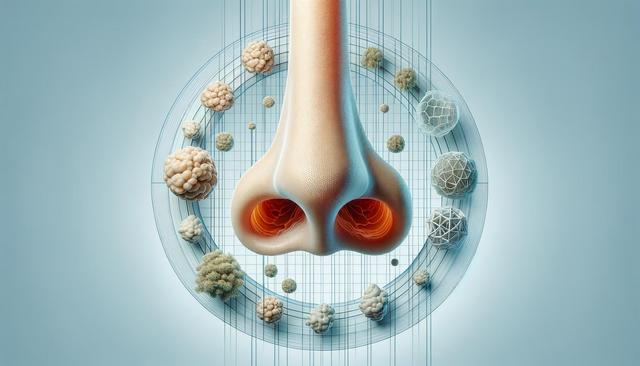What Are Nasal Polyps and 3 Symptoms to Watch For
Nasal polyps are soft, painless, and benign growths that form on the lining of your nasal passages or sinuses. They are typically the result of chronic inflammation and often occur in individuals with asthma, recurring infections, allergies, or immune disorders. These growths can vary in size and may block airflow depending on their severity. Understanding what are nasal polyps and 3 symptoms associated with them is key to early detection and treatment. Common symptoms include:
- Persistent nasal congestion
- Loss or reduction of smell
- Postnasal drip or frequent sinus infections
While small polyps may go unnoticed, larger ones can obstruct the nasal passages and lead to significant discomfort. If you experience any combination of these symptoms over an extended period, it may be time to consult a healthcare provider.
3 Causes of Nasal Polyps in Adults
There are multiple contributing factors to the development of nasal polyps, especially in adults. While the exact cause isn’t always known, certain conditions are strongly linked to their formation. Here are 3 causes of nasal polyps in adults that are commonly identified by medical professionals:
- Chronic Sinusitis: Long-term inflammation of the sinuses is one of the primary causes of nasal polyps. This condition can lead to tissue changes that promote the growth of polyps.
- Asthma: Individuals with asthma often experience ongoing inflammation in their airways, which can extend to the nasal passages and contribute to polyp formation.
- Allergic Rhinitis: Allergies can trigger immune system reactions that lead to chronic nasal inflammation and the eventual development of polyps.
Understanding these underlying conditions is important because managing them effectively may reduce the likelihood of polyps recurring after treatment.
How Nasal Polyps Affect Breathing and Daily Life
One of the most noticeable impacts of nasal polyps is their effect on respiratory function. How nasal polyps affect breathing depends largely on their size and location, but even small polyps can cause significant issues if they are positioned in a way that obstructs airflow. Individuals with nasal polyps often report:
- Difficulty breathing through the nose
- Snoring or sleep disturbances
- A feeling of pressure around the face and forehead
These symptoms can lead to poor sleep quality, reduced ability to exercise, and a general decrease in well-being. In some cases, individuals may also develop secondary infections due to mucus accumulation. Over time, untreated polyps can contribute to complications such as chronic sinus infections or worsening asthma symptoms.
3 Non-Surgical Treatments for Nasal Polyps
While surgery may be required in severe cases, many individuals with nasal polyps can manage their condition with non-invasive treatments. Here are 3 non-surgical treatments for nasal polyps that are commonly recommended:
- Prescription Sprays: Prescription sprays for nasal polyps often include corticosteroids, which help reduce inflammation and shrink the size of the polyps.
- Oral Medications: In some cases, short courses of oral corticosteroids may be prescribed to reduce severe inflammation quickly.
- Allergy Management: Identifying and controlling allergic triggers can help prevent the recurrence of polyps. This may include antihistamines or immunotherapy in some cases.
These treatments can be highly effective when used consistently and as directed by a healthcare provider. They are often the first step in a comprehensive management plan for nasal polyps.
Exploring the Best Nasal Polyps Removal Options
When non-surgical approaches fail to provide sufficient relief, removal may become necessary. There are several options available, and choosing among the best nasal polyps removal options depends on various factors including the patient’s health history and the severity of the condition. Common procedures include:
- Endoscopic Sinus Surgery: A minimally invasive approach that allows for the removal of polyps using small instruments inserted through the nostrils.
- Polypectomy: A simple procedure to remove polyps, often performed in outpatient settings under local anesthesia.
It’s important to note that while surgery can offer relief, it does not cure the underlying causes of polyps. Continued use of prescription sprays for nasal polyps and management of contributing conditions is usually necessary to prevent recurrence.




Leave a Reply